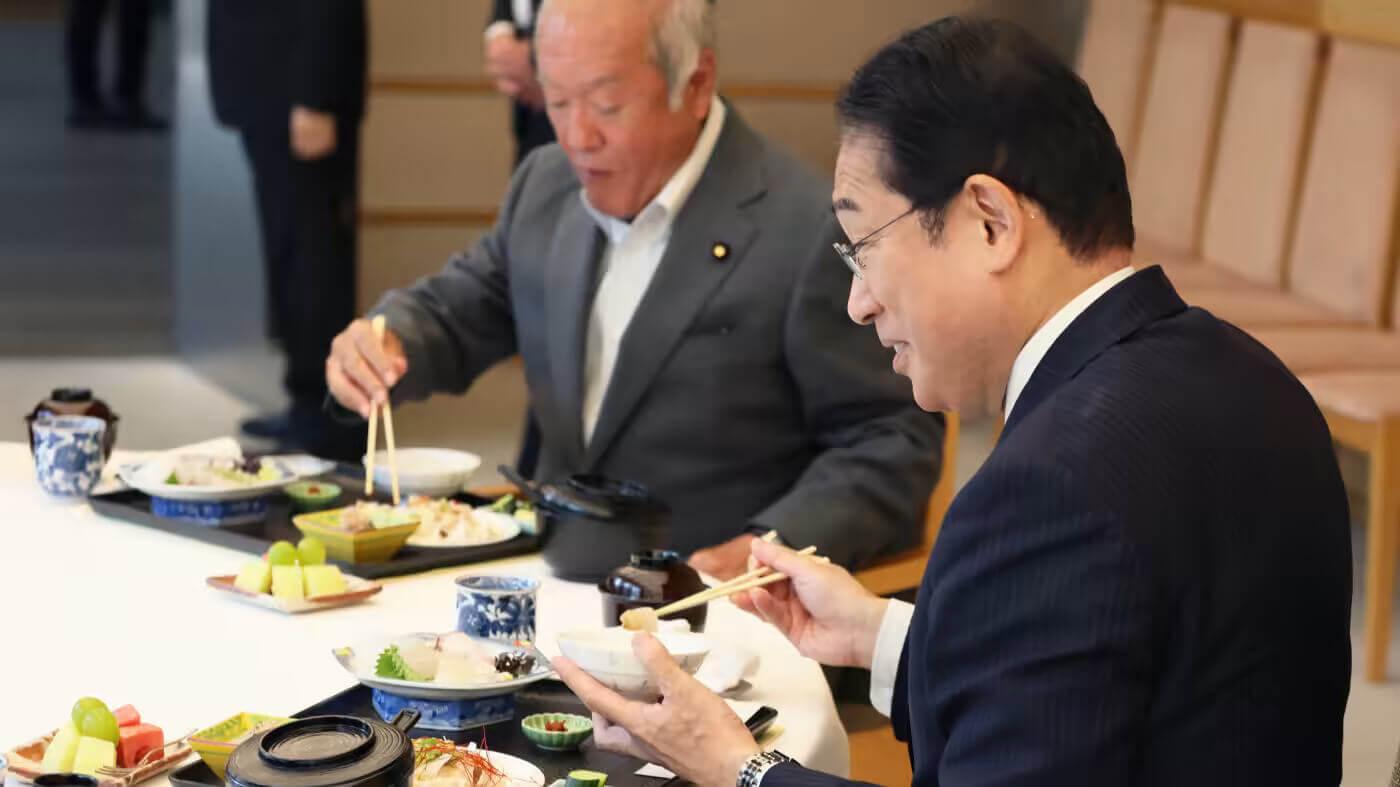On 24 August, Japan’s Tokyo Electric Power Company (TEPCO) started releasing almost 1.25 million tons of treated wastewater used to cool down nuclear reactors at the Fukushima Daiichi nuclear plant, which has long stood damaged from a massive earthquake in 2011. The process is expected to take at least two years.
Chinese Opposition and Harassment
China had vehemently voiced its opposition to the plan for years before the actual release, despite Japan’s best assurances that the process would be safe, transparent, and internationally approved.
However, as soon as TEPCO began releasing the water into the Pacific Ocean, the Chinese government banned seafood exports from the country and ramped up its anti-Japan rhetoric.
The propaganda even spilled over in the public, as Japanese business owners, including local schools, aquariums, restaurants, and even concert halls, reported a spike in harassment calls from Chinese speakers that affected normal operations.
The hate escalated so much that the Japanese government had to request China to “ensure the safety of Japanese residents living in China.” In addition, the Japanese embassy in Beijing urged nationals in China to refrain from speaking loudly in Japanese.
By releasing the Fukushima nuclear-contaminated water into the ocean, Japan is spreading risks worldwide and passing an open wound onto humanity’s future generations. It has turned itself into a saboteur of the ecological system and polluter of the global marine environment. pic.twitter.com/gEgClMcugI
— Spokesperson发言人办公室 (@MFA_China) August 24, 2023
Rooted in Science?
It is questionable if China’s rhetoric on the subject is rooted in scientific facts or a guise to monger fear among the masses against a country the Communist Party views to be heavily influenced by the West.
On the one hand, the harassment incidents come despite the Japanese government reporting new data on Sunday, showing that the wastewater being released into the Pacific was well within safe limits.
In addition, the Japanese environment ministry said on Sunday that a fresh test of the Fukushima coastal water showed no elevation in the levels of tritium.
Japan has also given several reassurances in the past and followed through. Two years before the release, it acquired approval from the International Atomic Energy Agency (IAEA).
Japan needs to stop at once selfishly putting the world at the risk of nuclear contamination. Do not let the water of Fukushima become the disgrace of Japan. pic.twitter.com/1nMKUGMGpb
— Spokesperson发言人办公室 (@MFA_China) August 25, 2023
According to a basic policy outlined by Japan’s Ministry for Economy, Trade and Industry, the radioactive water has been treated utilising an advanced liquid processing system to remove all contaminants below environmental levels but needs to be re-filtered to remove harmful isotopes.
Further, it has been significantly diluted to meet international standards before it is released into the ocean.
To further dispel fears of the contaminated seafood on human health, and undo some reputational damage to Japanese fisheries, PM Fumio Kishida and three of his cabinet ministers ate seafood sourced from the Fukushima Prefecture following the release of the wastewater.
On the other hand, Japan has also claimed that China rebuffed its offers to hold meetings where it would address any worries.
#WATCH: "It is delicious."
— Statecraft (@statecraftdaily) August 31, 2023
Japanese PM Fumio Kishida, along with three ministers from his cabinet, eats Fukushima fish sashimi, in an apparent effort to show that the fish is safe following the release of treated radioactive wastewater from the Fukushima Daiichi nuclear power… pic.twitter.com/k8xCiTdSUC
Political Motives?
Against this backdrop, it seems that China’s reaction may have little to do with the actual risk of contamination and more for political clout.
Anti-Japanese sentiment has run deep in China for decades, as nationalists often invoke China’s invasion and occupation by Japan during the 1930s and 1940s.
For over a decade now, the two neighbours have also been disputing over five islets in the East China Sea, a situation that often escalates to date, as China continues to build military infrastructure in the region, without any consideration for international rulings on the matter.
Moreover, Japan’s growing closeness with the West at large, especially since the onset of the Ukraine War, has frustrated the CPC leadership. In fact, the Western military alliance NATO is also considering opening a liaison office in the country.
To make matters worse, Japan has sided with the West on the issue of Taiwan’s sovereignty, a self-governing island that China claims to be part of its own territory.

